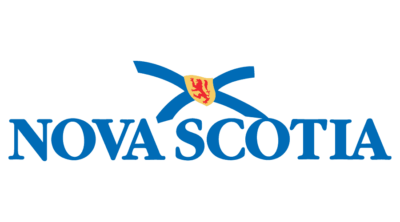The Challenge
The process to book a road test in Nova Scotia was facing several compounding challenges—a restrictive call-only booking option available exclusively during business hours; rapidly increasing demand for the service amid population growth; a general lack of clear information accessible to the public; and an outdated, labor-intensive notification system that struggles with consistency due to reliance on a monolithic legacy database.
This work is being led by Service Nova Scotia (SNS-IS), the Department of Cyber Security and Digital Solutions, and Nova Scotia Digital Service (NSDS) in collaboration with the Department of Public Works (DPW).
The Approach
Davis Pier and our partner, Kainos is leading the development of an enhanced service experience to deliver the book-a-road-test service for Nova Scotians in a way that is modern, simple to use, and a positive service experience. This approach also strives to reduce internal operational burdens and create efficiencies for staff, drivers, friends and family of drivers, and driving schools.
Our work is grounded in the principles of human-centred service design, and our approach was structured around 3 fundamental principles:
- Agile Management and Delivery. To be constantly in ‘Learn and Adapt’ mode, reacting to new information daily and integrating it into the work.
- Focused Stakeholder Engagement. Multifaceted engagement, input, and support from many other teams within RMV.
- Transparent Collaboration. An open and collaborative approach, sharing progress and inviting challenges to our work in the spirit of improving the process and the outcome.
The Work
This project is still underway—work to date includes in-depth discovery, interface research and design, and an analysis of current processes and opportunities for service improvements and process optimization.
Wide-net Discovery
We worked closely with the client to understand and document the book-a-road-test journey, identify the pain points and needs of diverse users through engagement and primary research. Key audiences we engaged with include customer service representatives, customer service leads, driver examiners, schedule coordinators, program coordinators, driving schools, and drivers.
This work defined the detailed road map to modernization and identified a minimum viable product (MVP) for the staff interface.
MVP Staff Interface
Our team worked with the client and key audiences to research, design, and test user interface designs for customer service staff. We worked within the existing infrastructure and processes of the Department of Cyber Security and Digital Solutions to configure development environments and deployment pipelines and to build a new front-end application within their existing design library. This foundational work enabled the development of a new web-based tool for customer service representatives to find the earliest available appointment across multiple locations and search parameters.
We designed and developed functionality that enables users to efficiently search for road test availability and apply several parameters specific to individual user preferences (date, test class, and location, etc.).
All this work is rigourously tested at multiple stage throughout development, including integration testing, functional testing, user acceptance testing, and testing to ensure compliance with industry standards and best practices. Our approach to digital modernization projects always includes continuous feedback, user testing, and refinement. We’ve continued to collect feedback and iterate the tool to meet the needs of customer service representatives and, in turn, to improve the customer service experiences for Nova Scotians.

